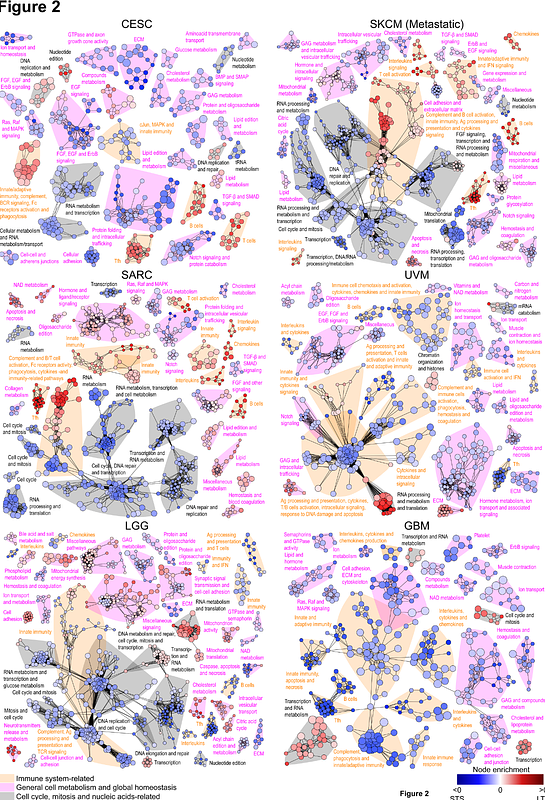Application of the AMOCATI R workflow to tumor transcriptomic data delineates the adverse effect of immune cell infiltration in immune-privileged organs

Application of the AMOCATI R workflow to tumor transcriptomic data delineates the adverse effect of immune cell infiltration in immune-privileged organs
Regnier, P.; Cagnard, N.; Podsypanina, K.; Darrasse-Jeze, G.
AbstractImmune cells are present inside tumor tissue and can alter tumor growth. Expression profiles of human tumors hold transcripts from cancer cells and their microenvironment, including the infiltrating immune cells. Few standardized methods examine tumor immunobiology relying only on tumor transcriptome data. Using a new in-house developed R analysis workflow called AMOCATI, we classified 43 cancer types from 11,176 patients according to the degree of infiltration by 18 distinct immune cell subsets, measured by the abundance of their transcriptomic signature, and calculated its effect on the disease outcome. In about half of cancers affecting organs without immune privilege, immune cell infiltration has beneficial effects. In contrast, immune infiltration in cancers of immune-privileged organs (eye, testis and brain) confers poor prognosis. Moreover, transcriptional evidence of increased immune cell activity in immune-privileged cancer sites is associated with bad prognosis. Thus, our results suggest that the effect of immune infiltration may depend on the origin of the primary tumor.


